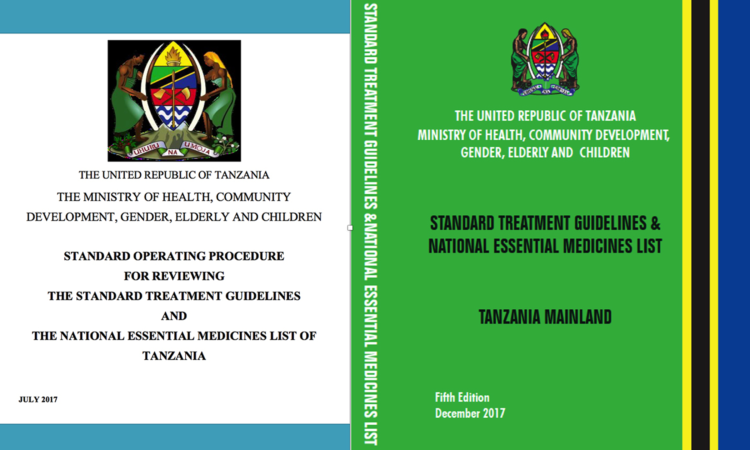Tanzania Health Entry Requirements : Are there any health regulations in Tanzania that I should be aware of? Tanzania is one of the best safari country in Africa with plenty of tourist attractions such as the great wildebeest migration in the Serengeti national park, the African big fives in the Ngorongoro crater, tree climbing lions in lake Manyara national park, mount Kilimanjaro-the largest free standing mountain in the word and Zanzibar island home to the beautiful beaches in Africa.

Tanzania is free from serious diseases like Ebola, but this does not indicate that it is also free from all other ailments. Tanzania, like many other African nations, has some diseases that pose a risk to tourists, so we advise anyone traveling to Tanzania to take health precautions while on their safari to avoid contracting any of the indigenous illnesses that are prevalent there.
Medical care in Tanzania: Dial 112 and request an ambulance if you require immediate medical attention while visiting Tanzania. If you are sent to a medical institution for treatment, you should get in touch with your insurance or medical aid provider at once.
Although there are plenty of medical facilities inside the towns, there aren’t many of them outside of Tanzania’s major cities like Arusha, Dar es Salaam, Mwanza, Dodoma, Tanga, Stone Town, etc. Make sure you have sufficient travel health insurance and readily available funds to cover the expense of international medical care, air ambulance evacuation, and repatriation.
Tanzanian authorities establish and uphold entry regulations. For further information, contact the embassy, high commission, or consulate of the nation or territory you’re visiting. Make sure your passport and other travel documents satisfy their requirements by consulting your transportation provider or travel agency.
What diseases should travelers to Tanzania be aware of and watch out for? To prevent becoming sick and enjoy a pleasant safari trip, you should be aware of and cautious about the following frequent diseases in Tanzania:
- Tanzania Health Entry Requirements : MENINGOCOCCAL DISEASE
This is a bacterial infection that can be spread through direct contact with an infected person’s respiratory secretions or by inhaling respiratory droplets. Usually, this happens after extended or frequent close contact. Meningococcal meningitis (infection of the protective lining surrounding the brain) and septicemia are the two most prevalent types of meningococcal illness (blood poisoning).
Healthcare professionals, people visiting friends and family, and long-term travelers who interact often with the locals are among those who are more at risk. Tanzania is located inside sub-Saharan Africa’s extensive meningitis belt.
Meningitis Prevention
Try to stay away from crowded areas.
Vaccination for meningitis
The following groups of people should get vaccinated: healthcare workers; people visiting friends and family; people who travel frequently, such as backpackers; people who stay in one place for an extended period of time and interact frequently with the local population; people with specific rare immune system issues (complement disorders); and people without a functional spleen.
- Tanzania Health Entry Requirements : TETANUS
It happens all over the world and is brought on by a toxin secreted by Clostridium tetani. Tetanus bacteria can enter the body through open wounds, including burns, scratches, and puncture wounds. They are also found in soil and manure.
Tetanus Prevention
All wounds should be completely cleaned, and travelers should get the right medical care.
Tetanus vaccination
Even if five doses of the vaccine have been administered before, a booster dose of a tetanus-containing vaccination is advised if traveling to a country where medical facilities may be scarce.
- Tanzania Health Entry Requirements : TYPHOID
A bacterial ailment called typhoid is spread by tainted food and water. Typhoid immunity from a prior infection may only be partially protective. The majority of travelers should get vaccinated, especially those who are visiting friends and family, those who have come into contact with an infected person, young children, frequent or long-stay travelers who are likely to be in areas with poor sanitation and food hygiene, as well as laboratory personnel who may come into contact with the bacteria while performing their duties.
Typhoid Prevention
Every traveler should practice good personal, food, and water hygiene.
Typhoid Vaccination
There are both oral and injectable typhoid vaccines available.
- Tanzania Health Entry Requirements : YELLOW FEVER
It is a virus spread by mosquitoes that primarily bite between dawn and sunset but which, especially in the jungle, may also bite at night. In severe situations, it can result in internal bleeding, organ failure, and death even if symptoms are absent or minor. Yellow fever exposure is extremely unlikely to occur anywhere in Tanzania.
Yellow fever Prevention
Always avoid getting bitten by mosquitoes when traveling.
Yellow fever Vaccination
There are certain side effects linked with the yellow fever vaccine that make it unsuitable for all travelers. Only accredited centers for yellow fever vaccinations offer this vaccine. Health professionals should carefully weigh the dangers and advantages of the vaccine and, if necessary, consult specialists.
In general, vaccination is not advised. However, for a limited subset of Tanzanian travelers (aged 9 months to under 60 years) who are at higher risk due to protracted trips, extensive mosquito exposure, or inability to avoid insect bites, vaccination may be explored. As a result of an increased risk of potentially fatal side effects, people 60 years of age and older shouldn’t have the vaccination before traveling to Tanzania.
- CHOLERA
It is spread through contaminated food and water; although mild illnesses are typical, cholera can cause severe watery diarrhea.
Cholera Prevention
Every traveler should practice good personal, food, and water hygiene.
Cholera Vaccinations
For people whose habits or medical history make them more vulnerable, the oral vaccine is advised. This includes humanitarian workers, those traveling to cholera epidemics who have little access to clean water and medical treatment, and anyone for whom vaccination is thought to have potential benefits.
- HEPATITIS A
A viral infection called hepatitis A can be spread through contaminated food, water, or direct contact with an infected person. In young children, symptoms are frequently minimal or nonexistent, but as people age, the disease worsens. Recovery can take weeks or even months. Hepatitis A immunity is permanent after infection. Long-stay travelers, people visiting unsanitary places, and people visiting friends and relatives are all at higher risk.
Hepatitis A Prevention
Every traveler should practice good personal, food, and water hygiene.
Anti-hepatitis An immunization
All previously unvaccinated travelers are advised to get the hepatitis A vaccine since it is well tolerated and provides long-lasting protection.
- HEPATITIS B
It is a viral illness that can be spread by coming into contact with infected blood or bodily fluids. The majority of the time, this happens during sexual contact or as a result of blood-to-blood contact, such as via infected instruments used for medical and dental operations, tattooing or body piercing treatments, or from sharing intravenous needles. Hepatitis B virus infection is known or suspected to persist in 2% or more of Tanzania’s population (intermediate/high prevalence).
Hepatitis B Prevention
Avoid coming into contact with blood or bodily fluids while traveling. Avoiding unprotected sexual contact, as well as tattooing, piercing, public shaving, and acupuncture are all part of this (unless sterile equipment is used). Not exchange injection tools or needles. When visiting locations with few resources, a kit of sterile medical equipment may be useful.
Vaccination against Hepatitis B
All travelers should think about getting vaccinated, and it is especially advised for those whose activities or medical histories put them at higher risk, such as those who may engage in unprotected sex, those who use drugs that require injecting, those who might come into contact with blood or bodily fluids while working (such as health workers), and those who might be exposed to contaminated needles while receiving medical or dental care, such as those with pre-existing conditions.
- MALARIA
A parasite known as Plasmodium causes red blood cells to become infected with malaria, a deadly disease. Mosquitoes, which often feed between dusk and dawn, are the carriers of the disease.
Typically, a fever (high temperature) of 38 °C (100 °F) or higher precedes the onset of symptoms. Other signs and symptoms could include a cold, shivering sensation, headache, nausea, vomiting, and sore muscles. Eight days to a year after the infected mosquito bite, symptoms may start to show.
People with malaria can rapidly worsen; therefore, prompt diagnosis and treatment are essential. Pregnant women, babies, young children, the elderly, travelers without a functioning spleen, and people paying visits to friends and family are among those who are more at risk of contracting malaria or developing serious complications from it.
Malaria Prevention
Being aware of the risk is important because it changes depending on the place, the time of year you travel, how long you stay, what you do, and where you stay. Travelers should take precautions to avoid getting bitten by mosquitoes.
Travelers should take antimalarial (malaria prevention tablets) when visiting areas with malaria diseases. No antimalarial is 100% effective, but taking them along with precautions to minimize mosquito bites will significantly reduce your risk of contracting the disease.

Travelers should seek prompt medical attention if they get any symptoms of malaria within a year of their return or if they experience a fever of 38 °C (100 °F) or higher more than one week after leaving a malaria-risk location. Those traveling to isolated locations with little access to medical care may want to think about emergency standby therapy. Each region of Tanzania below 1,800 meters, including Zanzibar, has a significant risk of contracting malaria.
- TUBERCULOSIS (TB)
A bacterial infection called tuberculosis (TB) is most frequently spread by inhaling respiratory droplets from an infected person. Usually, this happens after extended or frequent close contact. More than or equal to 40 cases of TB occur annually per 100,000 people in the population on average.
Travelers should stay away from those who are known to have contagious pulmonary (lung) TB. Those who are at risk while at work (such as healthcare professionals) should exercise the proper infection control measures.
Tuberculosis vaccination
According to current national recommendations, the BCG vaccine should be given to people who are at a higher risk of contracting a serious illness and/or being exposed to TB infection, such as those who live in areas where the average annual incidence of TB is greater than or equal to 40 cases per 100,000 people. For travelers who are unvaccinated, under the age of 16, and planning to stay in this nation for a duration of more than three months, the BCG vaccination is also advised.
All children under the age of six must have a tuberculin skin test before receiving a vaccination, and some younger children as well as unvaccinated, tuberculin skin test negative individuals at risk due to their occupation, such as healthcare or laboratory workers who have close contact with TB patients or potentially infectious clinical material, as well as veterinarians and abattoir workers who handle animal material that could be TB-infected, are recommended to do so.
- RABIES
It is typically possible to contract the virus that causes rabies by coming into contact with the saliva of an animal that has the disease, most commonly by being bitten, scratched, or licked on a mucous membrane or open wound (such as on the eye, nose, or mouth). Although many other animals can spread the virus, dog bites and scratches are the most common ways for it to spread. Bats have a significant role as an infection source in several regions of the world.
It can take some time for rabies symptoms to appear, but once they do, the disease is almost invariably fatal.
Rabies in Tanzania
In Tanzania, where domestic animals have been documented to have the disease, rabies is thought to pose a risk. Zanzibar might have rabies, although there isn’t much knowledge on the subject.
Rabies Prevention
Avoiding all animal contact is advised for travelers. By receiving prompt post-exposure care, rabies can be avoided. Even if a wound seems minor, it should be properly cleaned after a potential exposure, and a local medical evaluation should be sought immediately. Treatment and advice following exposure should follow national regulations.
Rabies vaccination
A comprehensive pre-exposure vaccination program streamlines and shortens the post-exposure treatment program and eliminates the demand for rabies immunoglobulin, which is in short supply globally.
Pre-exposure vaccinations are advised for tourists whose travel will take them to places where access to post-exposure treatment and medical care is restricted, such as those who plan to engage in higher-risk activities like running or cycling, long-stay travelers, laboratory workers handling the virus, people working with animals or healthcare professionals who may be caring for infected patients.


